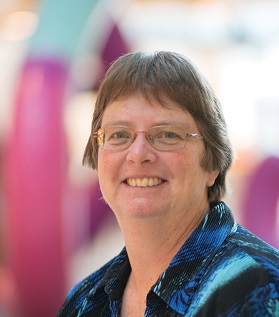Professor Lynn Gillam has joined the Department of Paediatrics
I am delighted to announce that Professor Lynn Gillam has recently joined the Department of Paediatrics at the University of Melbourne, moving from her previous University appointment in the Melbourne School of Population and Global Health. This strategic move will enhance further engagement and increasingly draw Lynn's academic skills onto the Melbourne Children's Campus.
Prof Lynn Gillam is a clinical ethicist who trained initially in philosophy (MA, 1988, Oxon) and bioethics (PhD, Monash, 2000). Her academic field is Health Ethics. Lynn is also the Academic Director of the Children's Bioethics Centre at the Royal Children's Hospital Melbourne. The Children's Bioethics Centre provides the clinical ethics service for the hospital.
At RCH, Lynn has been involved in over 200 ethics consultations since 2005. She also provides policy advice and leads research into a range of issues in paediatric clinical ethics - including end of life decision-making, management of differences of sex development, information-giving to children, fertility preservation for prepubertal children undergoing gonadotoxic treatment, use of high-cost investigational drugs and parental refusal of treatment. In 2018, Lynn was awarded the RCH Chairman's Medal in recognition of this work. At the University of Melbourne, Lynn teaches medical ethics in the MD curriculum and supervises PhD, Masters and Honours students. In 2019, Lynn was made a Member of the Order of Australia for service to medical education in the field of bioethics.
Lynn has a long-standing research interest in human research ethics and is the University's Central Human Research Ethics Committee Chair. Lynn is a member of several state and federal advisory bodies, including the Victorian Independent Medical Advisory Committee on Medicinal Cannabis and the NHMRC Clinical Ethics Working Group.
Many of you will already know of Lynn and her exceptional work. We hope the move to the Department of Paediatrics will provide further opportunities to engage in the study and development of clinical ethics in these times of pandemic, rapidly developing technologies and personalised therapies that all engender ethical challenges.
